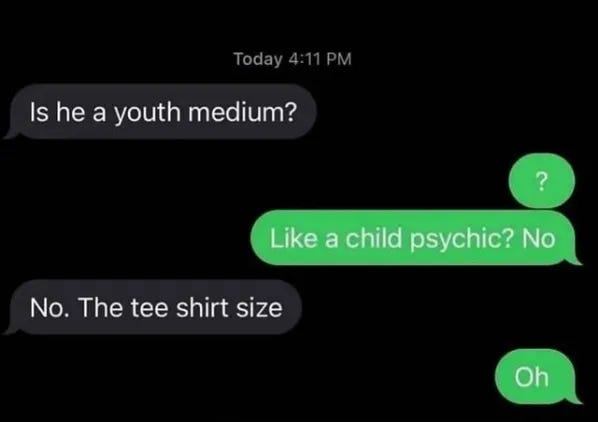Stranger Things
Making sense of the topsy turvy world these days perhaps requires peering through (or being peered at) a psychoanalytical lens — no surprise, more people are becoming comfortable lying down on the proverbial couch.
The word ‘shrink’ is now universally employed as a synonym for ‘psychiatrist’ — this cartoon served as a reminder — but why are they called shrinks?
Exploring this etymological rabbithole led me to the Jivaro Indians of the Upper Amazon basin in Peru & Ecuador. This primitive tribe is now well known because of their unusual custom of cutting off an enemy’s head, shrinking it to the size of a fist, and dancing around it in a joyous ritual. An impressive if grisly bit of surgery & biotechnology is ‘performed’ by ostensibly Stone Age tribesmen. Our first instinct is to see the activities of the Jivaros as the senseless acts of primitives — Lewis Cotlow studied them & wrote Amazon Head-Hunters to provide a fascinating account.
Life is hard in the jungle, and the Jivaros survive on hunting, fishing and farming. Cotlow interviewed the great chief Uticaja, who had amassed 58 heads.
He was proud that he had killed many of his family’s enemies, the enemies of his God & his faith. He was a happy man because he had done so much good in the world — his own world, but above all the spiritual world of his ancestors.
The tsantsa (the shrunken heads) are sacred objects necessary to the Jivaro way of life — they live in a world of demons, ghosts, spirits, and souls of unavenged relatives.
Headhunters
In a strange way, the tsantsa religion and the practice of psychiatry are connected beyond the ill-intended slang word ‘shrink’. In our modern world, many of us live in our own personal worlds consisting of demons, ghosts of the past, and shadows of departed relatives. As Cotlow notes:
Uticaja shrinks a head he has cut off
John Doe goes to church
Mary Roe visits a psychiatrist
There appears to be no connection.
But the motivation is the same in each case —
peace of mind.
As an aside, when a headhunter cold calls you next, remember to verify their antecedents — don’t mess with the Jivaro Indians.
In case the headhunter texts you..
Now, expand
In a surprising way, anthropology can make us look more sympathetically at each culture & age on its own terms. We don’t have to like what we see, but it is possible to observe the incredible differences & strange similarities between societies — not so much in the physical manifestations, but in the way they structure their worlds metaphysically. Anthropologists know this well, but it comes into sharper focus for us when we expand our minds to understanding the origins of ‘shrink’.
The Jivaros’ world is no less real to them than ours is to us. When faced with determining which is the more accurate view, we, including our psychiatrists, are very sure of the answer, but, so are the Indians.
Lucy, are you still there?
Fast Car
If music involving a getaway car1 is your idea of stress relief (or social healing, for that matter), you can watch an outstanding rendition of Fast Car here. Just Duet.
Last year the country music singer Luke Combs released a cover of Tracy Chapman’s 1988 song ‘Fast Car’. Chapman, who has almost never performed in public in recent years, made a point to come out of semi-retirement and sing a duet of ‘Fast Car’ with Combs at the Grammys. For a few moments, many people bought into the idea that this song could heal a polarized America: Maybe we make a deal. Maybe together we can get somewhere. I agree.







You helped me to widen my shrunken world of “shrinks”…fascinating! Amazed at your research on a wide variety of topics. And even more challenging is to string those ideas so beautifully on a common string.
And the song by the country singers is worth listening again and again. Will look up for the lyrics.